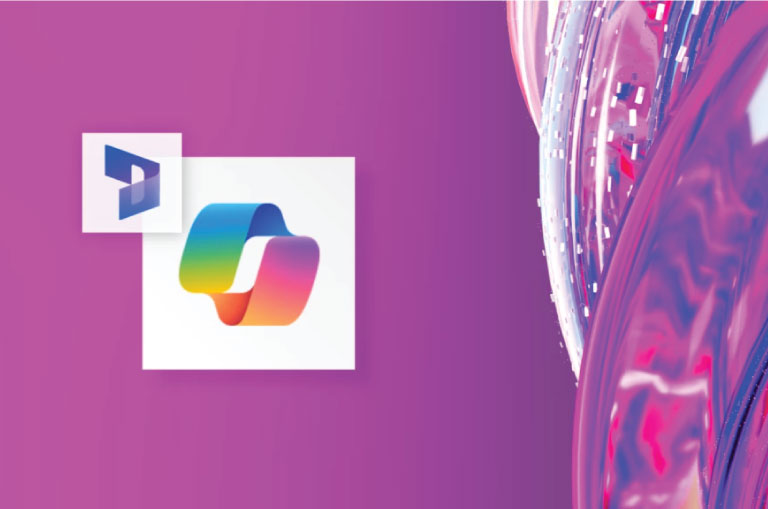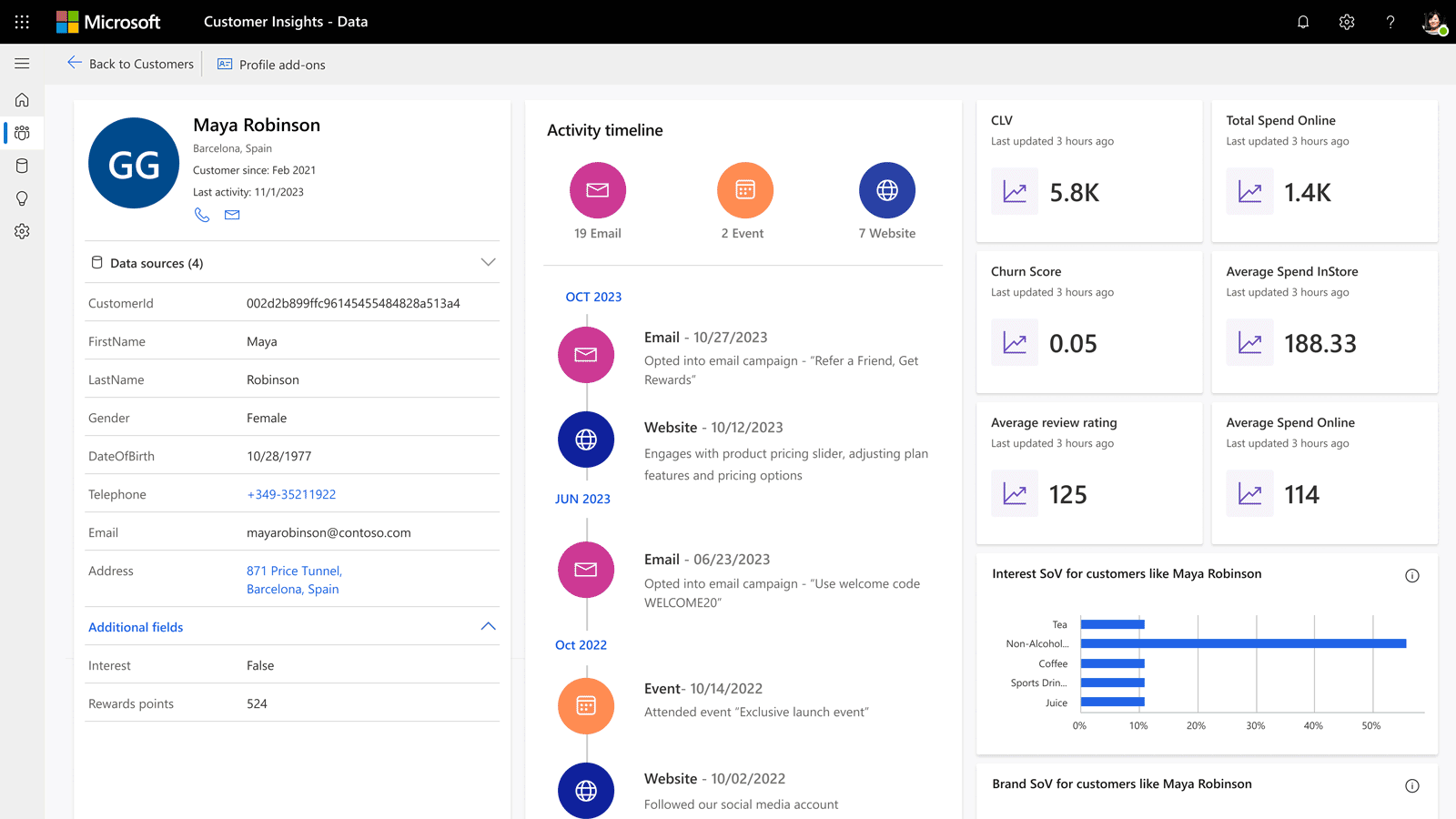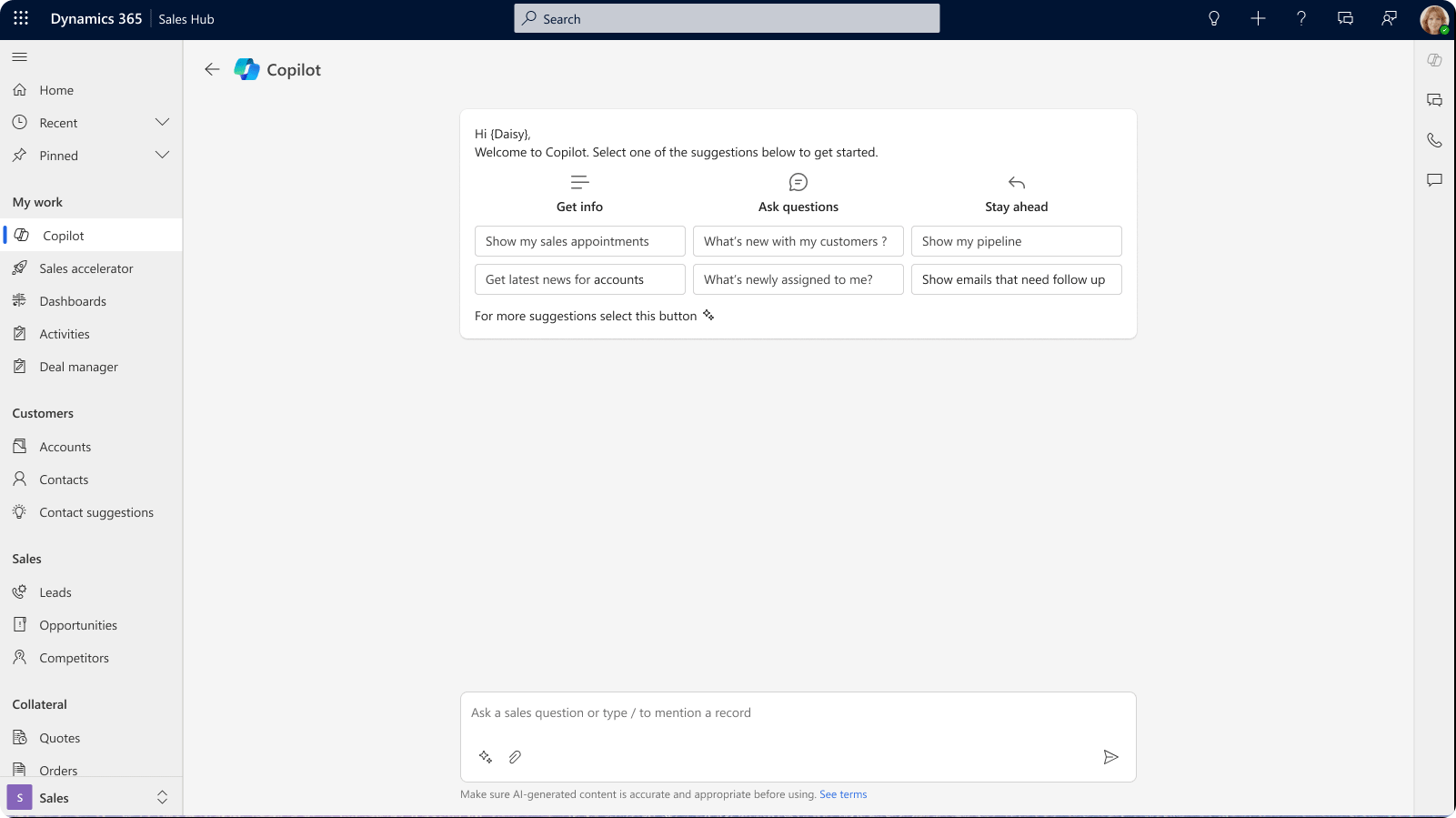How to upgrade your Customer Service using Microsoft Copilot AI features?
Are we ready to take customer service up a notch to cater to the modern digital shopper's growing needs? The concept of customer service has changed a lot, turning into a vital piece for maintaining business growth and keeping customers happy and loyal. We're seeing a big shift with the introduction of artificial intelligence in customer service, like Microsoft Copilot in Dynamics 365 Customer Service. It's a game-changer!
This tech blends efficiency with that all-important human element, letting businesses quickly and accurately address questions while making sure each customer feels unique. In this deep dive, let's explore how companies can make the most of Microsoft Copilot in their customer support efforts to boost their team's efficiency and ramp up customer happiness.

We're about to embark on an exciting journey, showing how AI can revolutionise ordinary customer interactions into extraordinary ones, locking in loyalty and driving success in our digital era.
Understanding Microsoft Copilot
Microsoft Copilot represents a paradigm shift in artificial intelligence, specifically engineered to enhance customer service. But what exactly is Microsoft Copilot, and how does it operate within a customer service framework?
Microsoft Copilot is built on the foundation of cutting-edge AI and machine learning technologies. It is designed to assist customer service representatives by providing real-time, data-driven insights and solutions. By harnessing the vast computational power of AI, Copilot can analyse customer queries, interpret needs, and suggest the most effective responses or actions to service agents.
At the core of Microsoft Copilot's functionality is its ability to learn and adapt from interactions, continually refining its responses and recommendations. This self-improving mechanism ensures that the tool becomes more efficient and relevant over time, aligning closely with specific business needs and customer expectations.
One of the standout features of Microsoft Copilot is its integration into existing customer service platforms, such as Dynamics 365 Customer Service. This integration allows for seamless access to all customer information, providing a comprehensive view that enables personalised service. Furthermore, Copilot can automate routine tasks, freeing agents to focus on more complex and sensitive issues that require a human touch.
In practice, Copilot helps customer service agents by drafting responses, suggesting solutions based on historical data, and providing quick access to relevant information. This not only speeds up response times but also ensures accuracy and consistency in customer interactions.
Through its AI-driven capabilities, Microsoft Copilot is transforming the landscape of customer service. It equips businesses with the tools to provide swift, informed, and personalised service, meeting the modern consumer's expectations for efficiency and attentiveness. In the following sections, we'll delve deeper into the practical applications and benefits of leveraging Microsoft Copilot in customer service scenarios.
Managing Customer Service in CRM Systems
A robust CRM system lies at the heart of this endeavour, offering a unified platform to streamline interactions, track customer issues, and deliver timely solutions.
A well-implemented CRM system consolidates customer data from various touchpoints, providing a 360-degree view of the customer journey. This consolidation is vital for understanding customer needs, preferences, and history, enabling service agents to deliver personalised and informed responses. Key functionalities include managing customer queries, automating service processes, and tracking service metrics to enhance decision-making.

Effective customer service management within a CRM framework involves several key components:
- Ticketing and Case Management: Efficiently log, assign, and track customer issues from inception to resolution. This system ensures accountability and keeps a record of customer interactions, facilitating follow-ups and ongoing support.
- Automation of Service Tasks: Automate routine tasks such as ticket routing, notification alerts, and follow-up emails. Automation increases efficiency, reduces human error, and allows agents to focus on more complex customer needs.
- Multi-channel Support: Integrate various communication channels like email, chat, social media, and phone calls into the CRM. This ensures a consistent and seamless customer experience, regardless of the contact point.
- Analytics and Reporting: Utilise CRM analytics to monitor service performance, identify trends, and uncover areas for improvement. Data-driven insights enable businesses to refine their customer service strategies continually.
Dynamics 365 Customer Service exemplifies an advanced CRM solution tailored for comprehensive customer service management. It embodies all these critical features, facilitating improved communication between businesses and customers. By leveraging Dynamics 365 Customer Service, organisations can not only respond to customer inquiries more efficiently but also anticipate needs and personalise interactions, leading to increased customer satisfaction and loyalty.
Integrating Microsoft Copilot with Dynamics 365 Customer Service
Mixing Microsoft Copilot into Dynamics 365 Customer Service is changing the game for how businesses handle talks with customers – it's making everything smoother and more spot on. By bringing AI into their current customer service setup, companies can seriously up their game and improve the quality of help they offer.
The integration process begins with setting up Microsoft Copilot within the Dynamics 365 environment. This involves configuring the system to ensure that Copilot has access to relevant data sources, including customer records, service histories, and knowledge bases. By tapping into this wealth of information, Copilot can provide more accurate and contextually relevant assistance to service agents.
Once integrated, Microsoft Copilot starts to transform the customer service workflow:
- Automated Response Drafting: Copilot can draft responses to common customer queries by analysing historical data and previous interactions. This not only saves time but also ensures consistency and accuracy in communications.
- Intelligent Case Routing: By understanding the nature and complexity of incoming queries, Copilot can route cases to the most appropriate agent or department, ensuring that customers receive the most efficient and effective service.
- Real-time Assistance and Recommendations: During customer interactions, agents can receive real-time suggestions from Copilot, including potential solutions, relevant knowledge articles, and customer history. This immediate access to information allows agents to provide quicker, more informed responses.
- Feedback and Learning: Copilot gathers feedback from both customers and agents on the effectiveness of responses and solutions. This continuous learning cycle allows the system to improve its recommendations over time, adapting to changing customer needs and business processes.
When businesses blend Microsoft Copilot with Dynamics 365 Customer Service, they're setting up a customer service scene that's quicker to respond, more in the know, and just all-around more efficient. This doesn't just make customers happier; it gives agents a boost too, letting them zero in on giving top-notch service while the AI takes care of the everyday stuff and sifts through data.
Real-World Applications of Microsoft Copilot in Customer Service
The practical applications of Microsoft Copilot in customer service are vast and varied, significantly impacting how companies interact with their customers and manage their service operations. Real-world examples demonstrate the tangible benefits of implementing Copilot within customer service frameworks, showcasing improvements in efficiency, customer satisfaction, and operational insights.
One compelling case study involves the Prada Group, a global leader in luxury fashion. By integrating Microsoft Copilot with their Dynamics 365 Customer Service platform, Prada has been able to enhance the quality and speed of its customer interactions. The AI tool assists Client Service Advisors by providing fast, accurate responses to customer inquiries and recommendations for products, streamlining the onboarding process and improving overall customer experiences.
Similarly, the Vanguard Group, an investment management company, has seen significant improvements in its customer service operations by utilising Copilot's generative AI capabilities. The technology has enabled Vanguard's customer care teams to deliver more efficient and effective service, leading to increased customer satisfaction and operational efficiency.
Microsoft's own Customer Service and Support team has also leveraged Copilot within Dynamics 365 Customer Service. They reported a reduction in average case handling time by 12% and an increase in the ability of agents to resolve cases independently. These improvements have been attributed to Copilot's ability to provide quick and relevant responses, draft emails, and summarise complex customer interactions, demonstrating the system's potential to transform traditional customer service models.
These examples highlight the transformative power of Microsoft Copilot in real-world customer service scenarios. By providing AI-driven support, Copilot enables businesses to resolve customer issues more effectively and efficiently, leading to better customer outcomes and more streamlined service operations. As more companies adopt this technology, the landscape of customer service will continue to evolve, driven by the innovative capabilities of AI.
You can find detailed information about Prada Group's experience with Microsoft Dynamics 365 Copilot in improving customer service on the Microsoft Dynamics 365 Blog at the following link: Prada Group's Experience with Microsoft Dynamics 365 Copilot.
Overcoming Challenges and Best Practices
Implementing Microsoft Copilot within Dynamics 365 Customer Service can revolutionise a business's approach to customer interactions. However, companies might face hurdles during this integration. Identifying these obstacles and adopting best practices is essential for a smooth transition and optimal use of the technology.
Resistance to change from staff accustomed to traditional methods is one common challenge. To mitigate this, businesses should invest in comprehensive training and underscore the benefits of Copilot, such as reduced workload and improved efficiency.
Data privacy and security are other concerns, as Copilot relies on access to vast amounts of customer data. Ensuring all data used complies with relevant regulations and company policies is essential. Regular audits and updates to privacy measures can help maintain security and trust.
Moreover, businesses should start with a pilot programme to gradually introduce Copilot, allowing for adjustment and learning. Collecting feedback from employees during this phase is valuable for refining the integration process.

Best practices include:
- Clear Communication: Regularly inform all stakeholders about the changes, benefits, and updates related to Copilot integration.
- Ongoing Support: Provide continuous training and resources to employees to ensure they are confident in using the new system.
- Feedback Loop: Establish mechanisms to collect and act on feedback from both customers and employees, enabling continuous improvement.
- Data Management: Maintain strict data governance policies to ensure the security and privacy of customer information.
By addressing these challenges and adhering to best practices, businesses can effectively leverage Microsoft Copilot to enhance their customer service operations.
Future of AI in Customer Service
AI's shaping up to revolutioniыe customer service, with big players like Microsoft Copilot leading the charge. As AI tech gets more refined, we're looking at customer interactions becoming way more personal and empathetic, all thanks to a richer understanding of what customers feel and need. We're also going to see a spike in predictive analytics, helping businesses jump on problems before they even happen, boosting customer happiness and keeping them loyal.
And there's more: self-service is getting a major boost from AI, letting customers sort out tricky questions on their own. This frees up customer service reps to tackle the really complex stuff, making their jobs more fulfilling and streamlining operations.
As AI continues to weave itself into customer service, we're setting new standards left, right, and center, especially in terms of efficiency, personal touch, and getting ahead of the curve. Looking forward, AI's role in customer care is only set to get stronger, paving the way for experiences that are more intuitive, anticipatory, and tailored to each customer. This shift is huge – it's not just making things better for customers, but it's also giving a power-up to service agents and transforming the whole industry.
Conclusion
Wrapping it up, marrying Microsoft Copilot with Dynamics 365 Customer Service is really rewriting the rulebook on customer support. It's a blend of cutting-edge AI smarts and that irreplaceable human element. This mighty duo is making customer service quicker, more personal, and ahead of the curve. Companies jumping on this bandwagon are not just keeping up—they're leading the pack, giving their customers an unmatched service adventure. As AI gets smarter, its part in customer service is only going to get bigger, so now's the golden hour for businesses to jump on this groundbreaking wave.
